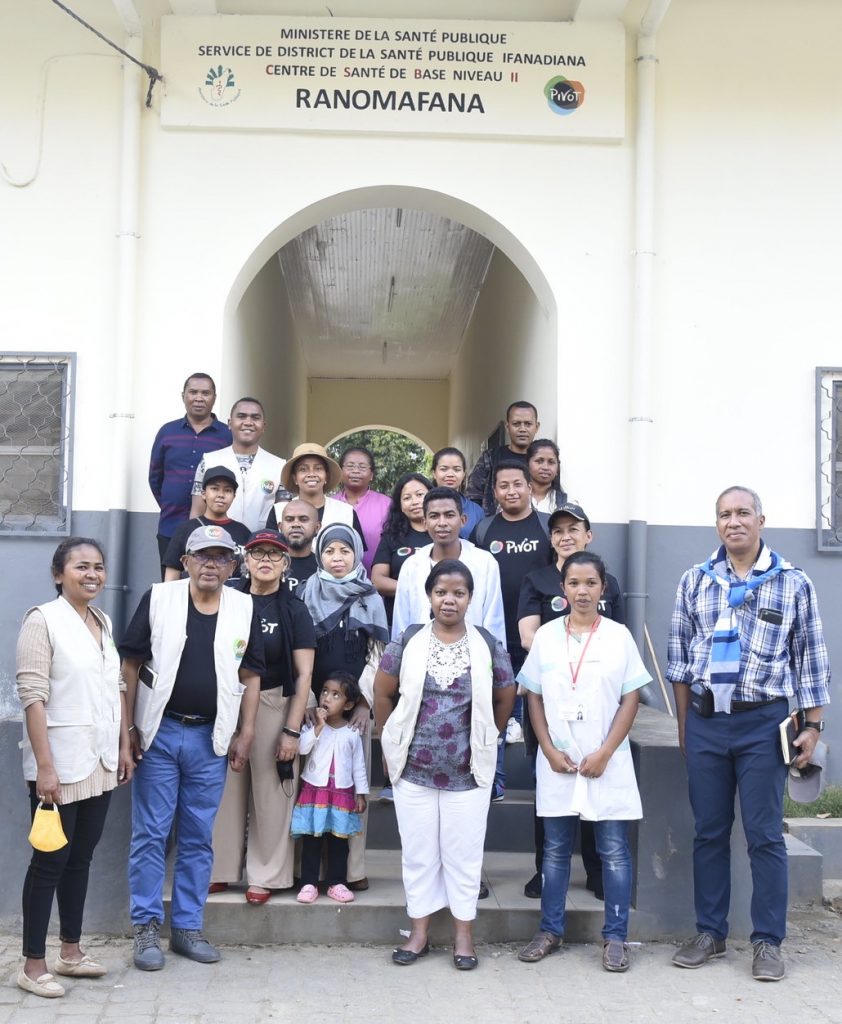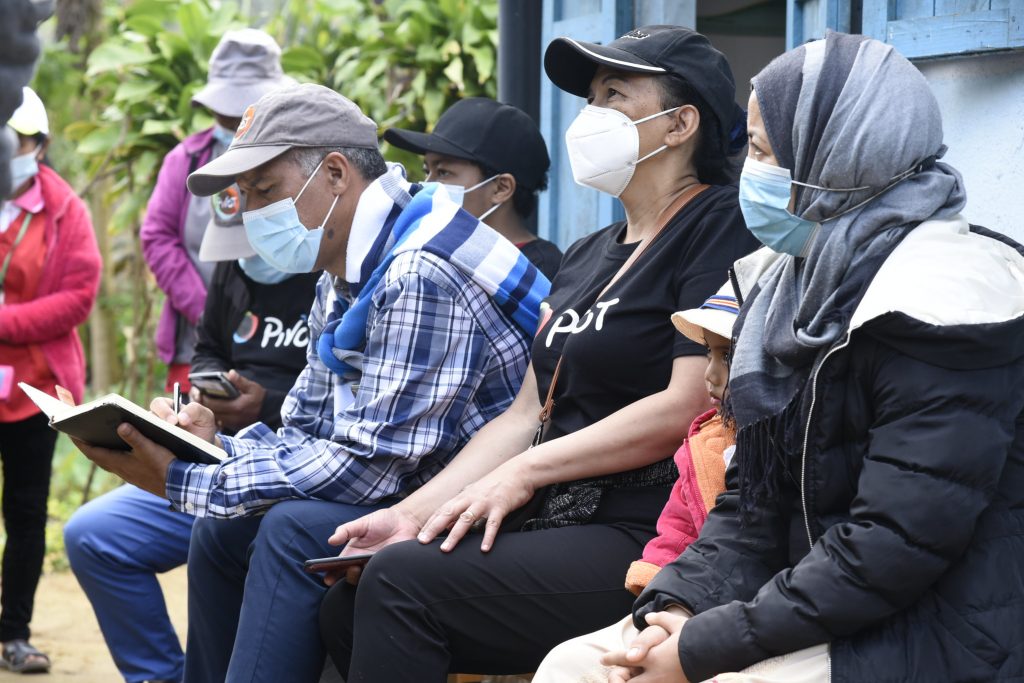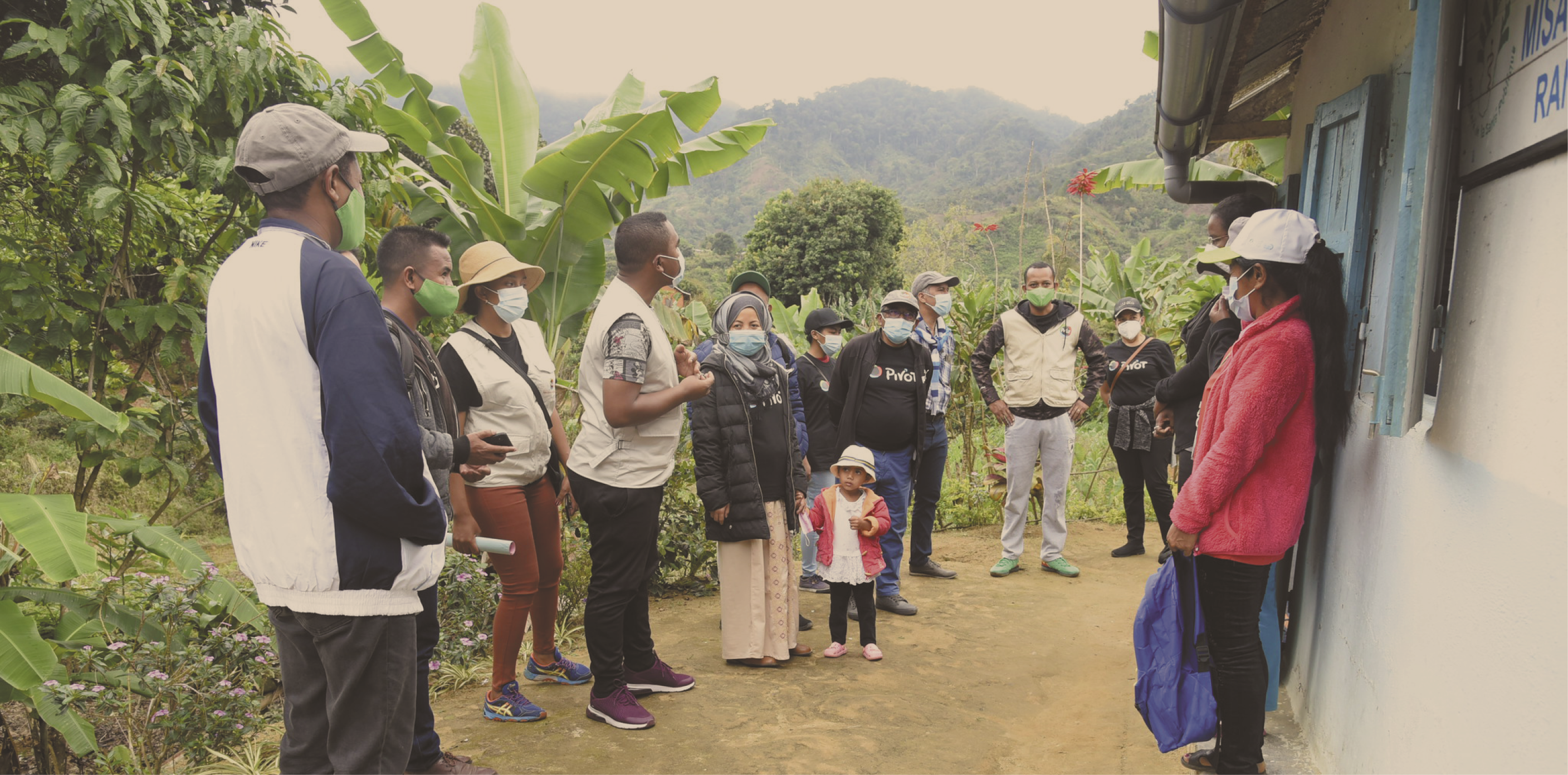26 Sep Malagasy Board Members Convene in Ifanadiana District
On September 23-25, 2021, Pivot held its annual board meeting.
This sounds relatively ordinary until one steps back to consider the context:

- This is the first in-person board meeting we have been able to hold since the pandemic began (all other board business has been managed through the wonders of Zoom).
- Those in attendance were the five newest Malagasy board members with their families (a long-held and beloved Pivot custom established in an effort to make everyone feel deeply connected to the work for the long-haul and to make travel requests – in this case an 11-hour drive each way to and from the capital – more fun and realistic).
- The meeting was held in our Ranomafana headquarters rather than Boston or NYC. This means that, in addition to an actual board meeting, the 3 days in Ifanadiana District were filled with community health walks, patient home visits, health center and hospital tours, and a guided forest walk through Ranomafana National Park alongside new Pivot staff members (part of all our staff inductions, intended to welcome people to working in our unique and ecologically vital setting).
- The board meeting hosts were the 10-person Malagasy Senior Management Team, headed up by Associate Medical Director, Luc Rakotonirina. As is custom, the board group was formally presented to everyone from the mayor to the head of the district hospital.
For these board members to walk alongside our staff and get an up-close look at the current work on the ground equips them to serve as the best possible advocates for our model district informing the national strategy for universal health coverage.
While Seheno Randriamanantena, Dr. Tahiry Raveloson, and Fara Rabemananjara are all former Pivot staff members (heads of finance, hospital care, and social work, respectively), our activities evolve quickly on the ground, so having them reconnect with the work and its progress by walking footpaths and visiting health facilities was essential. Some key changes since they were last with us include: community health workers now being paid, new clinical programs launched, an RT-PCR lab up and running, more health centers renovated/staffed/equipped to norms and beyond, and many of their former colleagues now leading the work.
 For our newest Pivot family member, Prof. Luc Samison – former Dean of the Faculty of Medicine at University of Antananarivo and current President of the Global Fund Country Coordinating Mechanism – the visit means a new level of understanding of the model itself. This enables him to puzzle through some of his biggest questions (e.g., how to retain staff in the most remote health facilities) with fresh eyes and more context, understanding that Pivot’s presence in Ifanadiana District facilitates innovation and outside-the-box ideas with the support of careful and rigorous research to make the case for innovation at the national level.
For our newest Pivot family member, Prof. Luc Samison – former Dean of the Faculty of Medicine at University of Antananarivo and current President of the Global Fund Country Coordinating Mechanism – the visit means a new level of understanding of the model itself. This enables him to puzzle through some of his biggest questions (e.g., how to retain staff in the most remote health facilities) with fresh eyes and more context, understanding that Pivot’s presence in Ifanadiana District facilitates innovation and outside-the-box ideas with the support of careful and rigorous research to make the case for innovation at the national level.
And even for founding board member Dr. Benjamin Andriamihaja, who serves as our Senior Advisor and just spent four months serving as Co-National Director (alongside Benedicte Razafinjato during Laura Cordier’s maternity leave), the visit was a reminder of just how deep and how broad Pivot’s reach is, and how much our work matters both in the lives of individual patients and in the big picture for his country.
In our journey to an ever-more Madagascar-centric leadership model, this moment is a big deal. With this group of five Tana-based board members in place and now deeply familiar with the present state of affairs, we are well-positioned to launch a search for a Malagasy Executive Director who can report to them and lead us through the completion of our model district this coming year, as well as expansion to two additional districts in the year that follows. Planning for the four-year national health strategy will begin in the summer of 2023, and this visit means so much than just checking the annual board meeting off a to-do list; it brings us one step closer to having the right people in the right roles at the national table, ensuring all that we’ve built together with the government since 2014 will mean as much as it possibly can for the health of the population in Madagascar and beyond.
(Learn more about each of our Malagasy board members here.)

